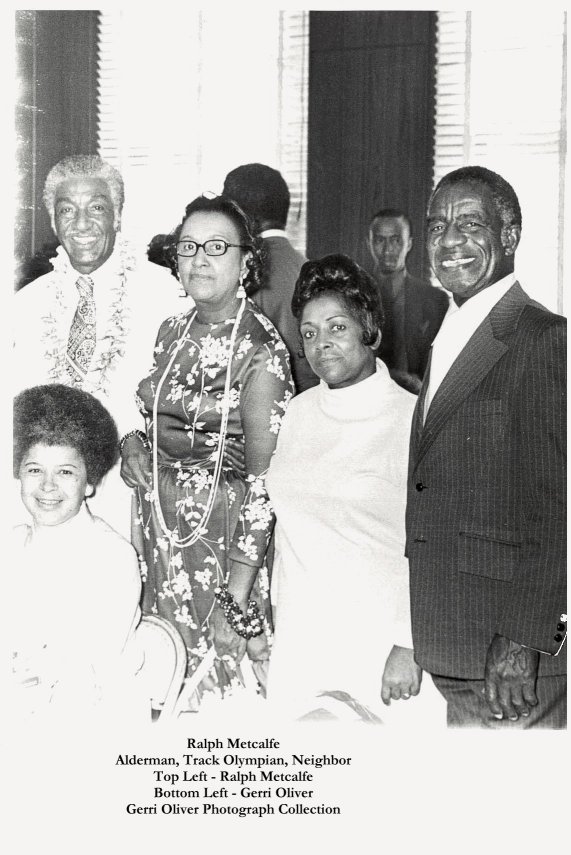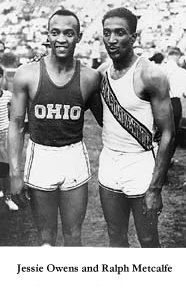Ralph Metcalfe

Gerri Oliver (bottom left) with Ralph Metcalfe (top left)
Ralph Metcalfe Gerri Oliver (bottom left) with Ralph Metcalfe (top left)
Ralph Metcalfe achieved worldwide fame as an athlete before he became a politician and a symbol of independence from the Democratic machine for Chicago's blacks. He was born in Atlanta on May 29, 1910, and moved with his family to Chicago, where he attended public schools. A competitor in track events since the age of fifteen, he was a medal winner in the Olympics of 1932 and 1936.
In 1952 he was elected Third Ward Democratic Committeeman and won a seat on the Chicago City Council in 1955.When the powerful but aging First District Representative William L. Dawson, a long-time member of the Democratic machine, decided to retire from the House, he supported Metcalfe, who was elected easily a few days before Dawson's death in November 1970. Metcalfe entered the House on January 3, 1971, and served on the Committee on Merchant Marine and Fisheries and on the Interstate and Foreign Commerce Committee.
A former chairman of the Chicago City Council's housing committee, Metcalfe worked to expand the availability of home improvement loans and federal housing programs and to improve the safety of residents in public housing projects. He also fought to eliminate the practice of "redlining" -- the withholding of home-loan funds and insurance from low-income neighborhoods. In an effort to improve the climate for minority-owned businesses, Metcalfe successfully added an amendment to railroad legislation to offer minority firms access to work on projects to revitalize the nation's railroads.
In 1972 Metcalfe broke with Chicago's Democratic machine over the issue of police brutality in the black community. Charging that blacks had been mistreated and abused by the police department, he conduced public hearings to give victims and witnesses a forum and organized a citizens' group to lobby the city government for reforms. He also supported independent anti-machine candidates and refused to endorse Mayor Richard J. Daley in the 1975 mayoral contest.
